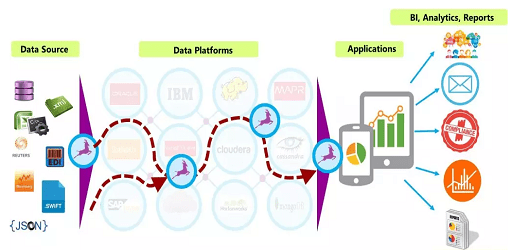ChatGPT Pose a Cybersecurity Risk: At this point, who hasn’t utilized the ChatGPT platform? It is entertaining, and utterly intriguing if you have any curiosity about artificial intelligence, and it is completely free.
In most contexts, ChatGPT is referred to as a chatbot; nevertheless, it is significantly more than that. It can come up with jokes, develop code, generate copy, explain difficult concepts, and function as a translator. It can also translate. However, it is also possible for threat actors to weaponize it.

How ChatGPT operates and the reasons why it’s Popularly used by Cybercriminals
The artificial intelligence research laboratory OpenAI is responsible for the development of ChatGPT (Generative Pre-trained Transformer), which was released to the public in November 2022. It is a very big language model that makes use of supervised machine-learning techniques in conjunction with reinforcement machine-learning approaches.
ChatGPT is continually fine-tuned and trained by users, who may either upvote or downvote its responses. This makes it all the more accurate and powerful, as it accumulates data on its own, which is perhaps the most significant aspect of this feature.
That makes ChatGPT very different from any other chatbot. And if you’ve ever tried it, you’ll know the difference is immediate: whereas other similar products merely spit out words without much understanding of what is being said, it can converse and perform complicated tasks with astonishing accuracy while still producing responses that are clear and readable.
If you were given a short essay by a human and one written by ChatGPT, it is quite unlikely that you would be able to tell which one was which. As an example, the following is part of the essay that ChatGPT generated based on a request to do a short analysis of The Catcher in the Rye.
This is not to suggest that ChatGPT doesn’t have any restrictions, since it most definitely does. The more you make use of it, the more you’ll become aware of how true this statement is.
In spite of its impressive power, it is nevertheless susceptible to having problems with elementary reasoning, making errors, disseminating false and misleading information, comically misinterpreting instructions, and being led astray by manipulation into reaching the incorrect conclusion.
However, the value of ChatGPT does not lie in its capacity for conversation. Instead, its advantage resides in its nearly limitless capacity to finish jobs simultaneously in a manner that is both more effective and significantly quicker than a person could do them.
ChatGPT has the potential to become an alarmingly effective automation tool if the appropriate inputs and instructions are used in conjunction with a few ingenious workarounds.
Keeping all of this in mind, it is not hard to picture how a malicious hacker could turn ChatGPT into a weapon. It is imperative that the appropriate approach is identified, that it be scalable, and that the AI be made to finish as many jobs as possible all at once if required using many accounts and several different devices.
5 Dangerous tasks that could be done using ChatGPT
There are currently a few examples of threat actors making use of ChatGPT in the real world; nevertheless, it is quite likely that it is being weaponized in a number of different ways, or that it will be at some point in the future. Here are five things that can be done with ChatGPT by hackers (and probably are being done by them).
-
Compose and send out phishing emails
Even while spam filters have become increasingly sophisticated, malicious phishing emails continue to get through, and the average user is powerless to stop this other than to notify the sender to their Internet service provider (ISP). However, a capable threat actor having access to ChatGPT and a mailing list may do a great deal with these two resources.
By providing the threat actor with the appropriate orders and ideas, ChatGPT is able to generate convincing phishing emails, potentially automating the process and allowing them to scale their operations.
-
Create malicious software
If ChatGPT is capable of writing code, then it is also capable of writing malware. That comes as no surprise. However, this is not merely a possibility that can be considered theoretical.
Check Point Research, a company that specializes in information security, made the startling discovery in January 2023 that fraudsters are already writing malware with ChatGPT and boasting about it on underground forums.
Check Point Research found that the threat actor exploited the advanced chatbot in an extremely creative way to reproduce Python-based malware which was reported in some research articles.
When researchers evaluated the harmful program, they discovered that the cybercriminal had been speaking the truth: the malware that was developed using ChatGPT accomplished exactly what it was intended to do.
-
Build scam websites
If you make search on Google for the phrase “create a website with ChatGPT,” you will come across a number of guides that explain in great depth how to carry out the task at hand.
In spite of the fact that this is excellent news for everybody who has ever entertained the idea of creating a website from scratch, it is also excellent news for those who engage in illegal online activity. What prevents them from utilizing ChatGPT to construct a number of fraudulent websites or landing pages for phishing attacks?
The opportunities are nearly unbounded in scope. A threat actor may use ChatGPT to clone an existing website and then modify it; develop false websites for conducting online commerce; operate a website that engages in scareware scams; and so on.
-
Engage in the dissemination of disinformation and fake news
In recent years, the spread of misinformation online has developed into a significant problem. On social media, fake news can spread like wildfire, and people who aren’t as savvy as they may be are more likely to believe misleading and even completely fabricated accounts of events.
This can have serious repercussions in real life, but it appears that nobody has any idea how to limit the spread of fake news without infringing on people’s rights to free expression.
It’s possible that software like ChatGPT will make this situation much worse. It seems like a formula for catastrophe to have threat actors with access to tools that can manufacture thousands of false news items and social media posts every single day.
-
Generate Content for Spam Emails
You need content, and a lot of it, in order to construct a copycat website, maintain a phony social media presence, or put up a false website. And in order for the hoax to be successful, it must have the appearance of being completely genuine.
Why would a threat actor spend money hiring content writers or taking the time to produce their own blog entries when they could just have ChatGPT do it for them?
It is true that a website containing AI-generated content would probably be penalized by Google fairly quickly and would not appear in the search results; however, there are a variety of different ways in which a hacker could promote a website, send traffic to it, and scam people out of their money or steal their personal information.
If you still aren’t convinced, we asked ChatGPT how a malicious hacker would employ it in their work. It seems to agree with the main point that was made in this post.
When held by Cybercriminals, ChatGPT can be extremely dangerous
It is difficult to fathom what artificial intelligence will be capable of achieving in the next five or ten years. Ignoring the hype and the hysteria and taking a realistic look at ChatGPT is the best course of action for the time being.
ChatGPT is yet another example of how technology in and of itself can neither be useful nor detrimental. Despite having a few flaws, it is far by the most capable chatbot that has ever been made available to the general public.
Would you like to read more about the Security risks of ChatGPT-related articles? If so, we invite you to take a look at our other tech topics before you leave!
Hire SearchGPT SEO Agency to optimize your website for more visibility.
![]()













